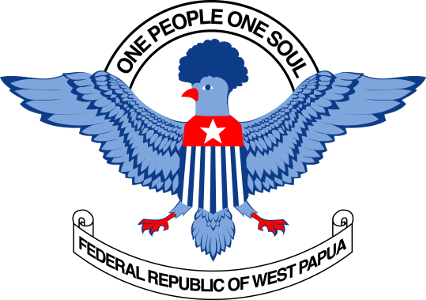ULMWP Media Statement, 14 March 2020
Indonesia pressured to negotiate with United Liberation Movement for West Papua
As Defense Minister (and former general) Prabowo Subianto escalates Indonesia’s war against West Papuans, the Jokowi government is under pressure to respond to West Papuans invitation to negotiate peace and self-determination with the United Liberation Movement for West Papua.
The Jakarta government continues to stone-wall the invitation—despite the recommendation of its own government in Jayapura—thus recycling its colonial behaviour against East Timorese between 1975 and 1999 as well as the Netherlands colonial behaviour against Indonesians between 1945 and 1949, which both eventuated in the humiliation of UN intervention (NOTE 1)
In truth, Indonesia has little to bring to the negotiating table. Firstly, the legality of its occupation in the 1960s will not withstand the scrutiny of the International Court of Justice. Secondly, its 2001 Special Autonomy is consistently censured for failing its development objectives and for its exponential growth of military infrastructure and personnel. Thirdly, its human rights records is abysmal: from genocide in the 1970s (The Neglected Genocide Asian Human Rights Commission, 2013), to an extraordinary list of unlawful killings and political prisoners (Don’t bother, Just let him die; killing with impunity in West Papua Amnesty International, 2018); to the displacement of 45,000 villagers in 2019 after the Indonesian Airforce dropped bombs of the banned chemical white phosphorous in Nduga (Chemical weapons dropped on Papua The Saturday Paper, 22 December 2018) to The New York Times report of two-thousand Papuans fleeing military operations after the insertion of 16,000 more troops in 2019 and another 700 in 2020 (NOTE 2)
In contrast, the ULMWP rides to a negotiating table on the back of motions by the Pacific Islands Forum (an 18-member intergovernmental forum that includes Australia and New Zealand) and the African Caribbean Pacific Group of 79 UN member-states. Both motions call on parties to address the ‘root cause’ of the conflict and on Indonesia to allow the UN Human Rights Commission’s outstanding fact-finding mission. And Vanuatu is preparing a motion for the UN General Assembly to register West Papua on the UN Decolonisation List.
The ULMWP has generated a vast network of support since its formation during a Summit for West Papua leaders in 2014. The Summit itself was a regional initiative of Melanesian church and women’s organisations; sparked by the 2013 World Council of Churches Assembly; sponsored by the Vanuatu Government and Pacific Conference of Churches; and mediated by the Vanuatu Christian Council and Malvatumauri National Council of Chiefs (NOTE 3)
The ULMWP is asking its Indonesian supporters to urge their government to withdraw its military and police because—like their comrades in East Timor, and like Dutch soldiers in Indonesia in the 1940s—they are dying in vain, leaving widows and orphans, fighting for territory that isn’t theirs. The ULMWP is demanding that the West Papua Army not be described as armed criminals, but respected as professionals protecting their people and their nation, their lands and resources. It is insisting on West Papuans right to be free of colonialism, which is guaranteed in the Indonesian Constitution, by international legal convention, by customary law, and under God’s law.
NOTE 1: There are notable legal differences. The UN Security Council opposed Indonesia’s military invasion of East Timor in 1975, and the territory remained a Non Self Governing Territory under Portuguese administration until 1999 when the UN supervised an act of self-determination which delivered independence. In contrast, after Indonesia’s invasion of West Papua in 1961, the UN over-rode the nation’s status as a Non-self-governing territory and co-sponsored an agreement that was in accord with the USA agenda of accommodating Indonesia’s quest for sovereignty. Consequently there has never been an act of self-determination in West Papua.
The formation of Indonesia has a different legal history: after Japan’s surrender in 1945, one part of the Non Self governing Territory unilaterally declared independence, which incited a four-year war against the Netherlands. In 1947 Australia raised a motion in the UN (supported by the US, Belgium, New Zealand) for diplomatic and military observers to mediate peace-talks, ceasefires, repatriation of Dutch forces and the transfer of sovereignty. By 1948 the Security Council’s field agents were calling for the formation of a sovereign United States of Indonesia as “the best way to avoid the serious consequences of failing to achieve a negotiated settlement” (https://history.state.gov/historicaldocuments/frus1952-54v03/d800). To ‘encourage’ the Dutch to the negotiating table, the US Economic Cooperation Administration (ECA) suspended its post-war assistance, but left the door open to resuming assistance to Indonesia if a political settlement was reached (European Recovery Program, The Netherlands, Economic Cooperation Administration, Washington, Feb 1949). Indonesia was important to the European Recovery Plan for its rubber, copra, palm oil, tin, bauxite, petroleum. As a colony it had been a substantial net dollar earner and the ECA believed it could again be a source of dollars for the Netherlands and other countries.
NOTE 2: Villagers flee to escape shootings in Indonesia’s Papua 7 March 2020 https://www.nytimes.com/aponline/2020/03/07/world/asia/ap-as-indonesia-papua-shootings.html. Also Indonesian military depopulating villages to protect Freeport gold mine by ULMWP Chair Benny Wenda, at www.ulmwp.org/urgent-alert-indonesian-military-depopulating-villages-to-protect-freeport-gold-mine
NOTE 3: The ULMWP’s five-person executive was elected from and is tightly accountable to the nation’s three political identities: the West Papua National Parliament, West Papua National Coalition for Liberation, and the Federal Republic of West Papua. Each of these identities is accountable to a range of dynamic Civilian Powers—the churches; ADAT (tribal) infrastructures; youth, student, workers, and women’s’ groups; and energetic Political Powers like the nation’s political parties and its military diplomatic, and intelligence organisations.
Jacob Rumbiak, Spokesperson
United Liberation Movement for West Papua
